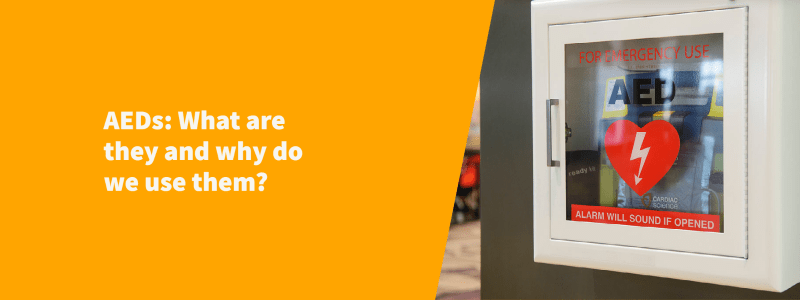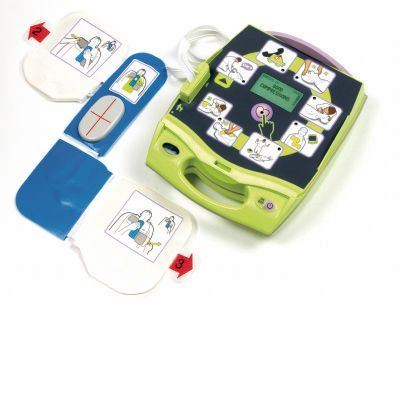What is an AED and why should I use one?
An AED is a portable, automated external defibrillator that is used to aid those experiencing a sudden cardiac arrest. Using an AED and performing CPR can double the chances of surviving a cardiac arrest outside of the hospital. But, every minute that passes reduces survival by around 7%. Being able to access a defibrillator is important as it can save someone’s life in their time of need. If you have an AED in your workplace, it is important that you know how to use it properly.
A cardiac arrest can happen to anyone, at any age, not matter what your health and fitness levels are; having a defibrillator can be the difference between surviving and not. Because of this, many people are seeing the benefits of AEDs with petitions being created to ensure they are more accessible.
How does an AED work?
Defibrillator’s have internal computers that analyse a person’s heart rhythm. Electrodes from the internal computer are then attached to a person’s chest. If needed, the electrodes deliver electric shocks to restore a person’s heart back to normal rhythm. AEDs are easy machines to use, and simply require the user to follow the instructions read out through speakers on the AED. These prompts allow users of any skill level to become a life saver.
Who should attend an AED training course?
The AED training courses are suitable for anyone who wants to further their first aid skills or for someone who has a defibrillator in their place of work. You do not need to be trained to use a defibrillator, however, training courses would ensure that people are confident should they ever need to use one.
There are many different course providers such as; St. Johns Ambulance and British Red Cross. All courses are different in length with the most common topics including;
- Chest pains
- CPR
- Communication and casualty care
- Operating a defibrillator
- Aftercare
We have created a defibrillator buyers guide to help you decide which is best for your workplace.
Contact us for help and advice on defibrillators.


